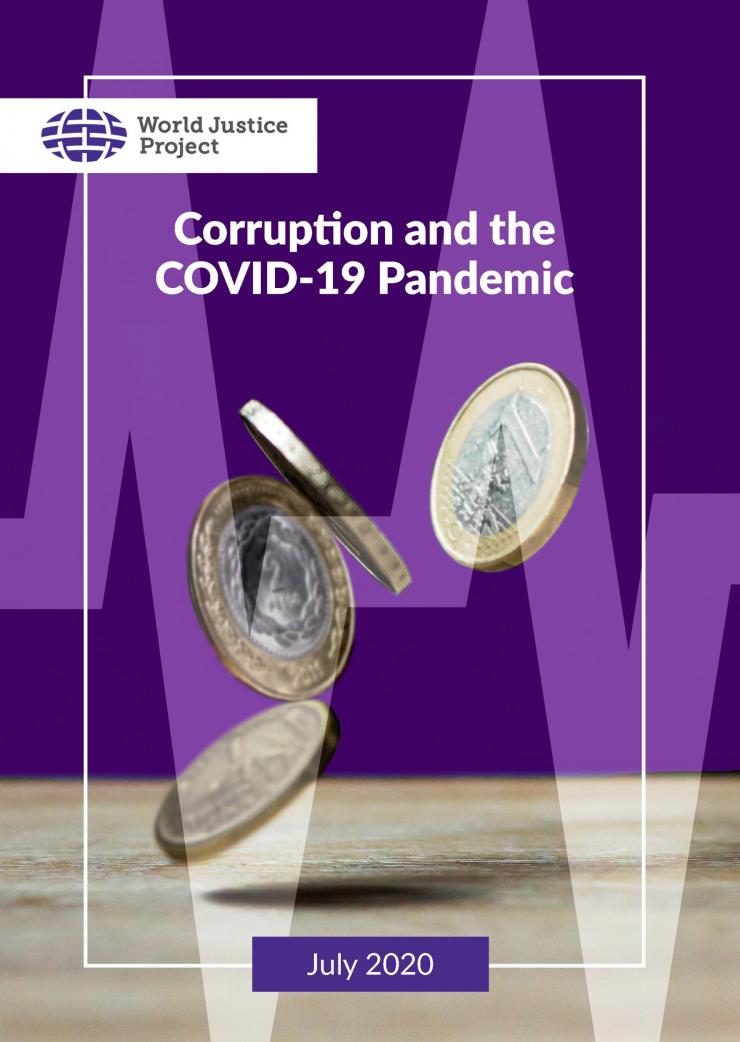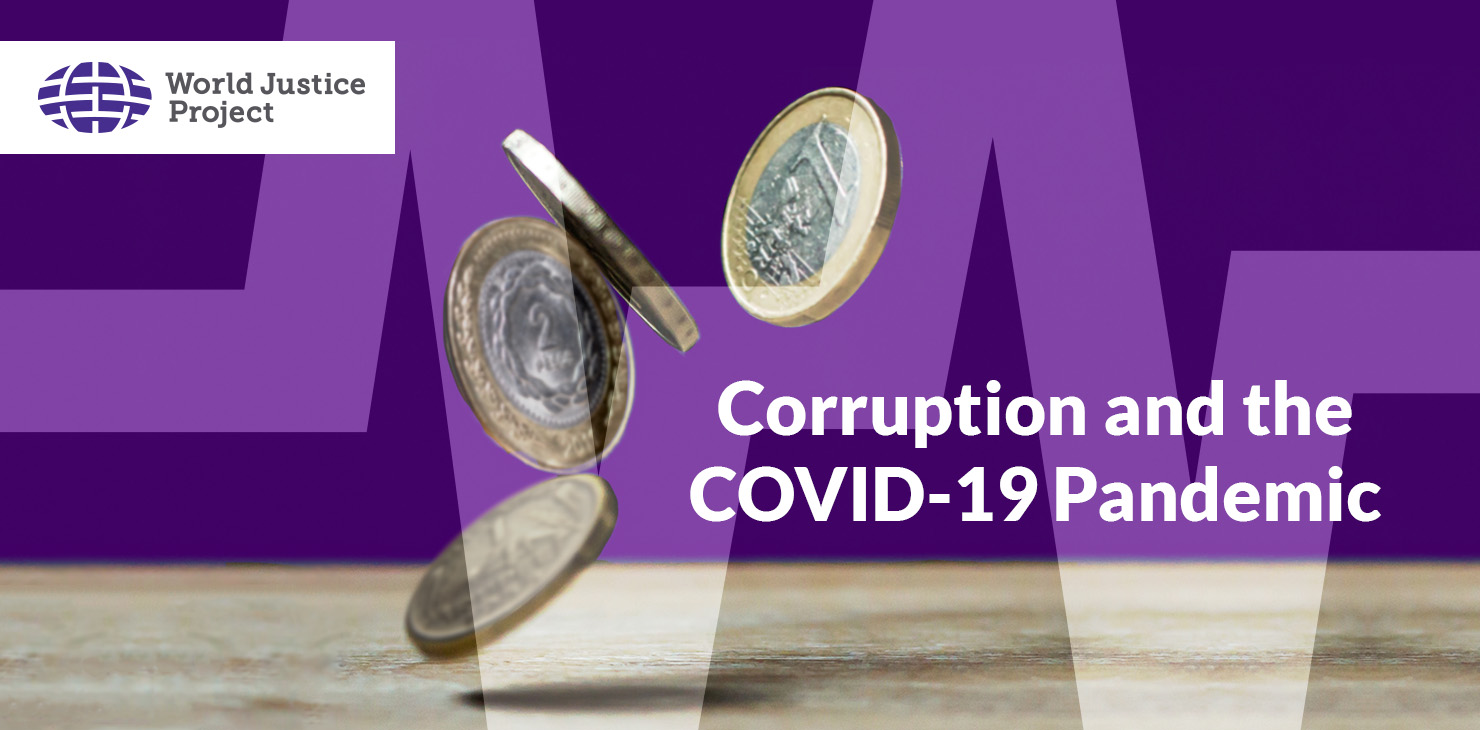

This policy brief is part of a multidisciplinary initiative from the World Justice Project to expand knowledge of the relationship between public health and the rule of law, and to identify measures to tackle the twin crises of the COVID-19 pandemic and the rule of law where they intersect. Learn more about this initiative here, and look for additional policy briefs to be published at worldjusticeproject.org/news in the coming weeks.
The COVID-19 pandemic gives rise to very significant risks of corruption. Massive resources mobilized to respond to the health and economic crises create opportunities for corruption, while many corruption prevention and enforcement mechanisms are suspended due to the emergency. This corruption risk is a rule of law problem in itself. It also compromises the pandemic response, undermining much-needed trust in public institutions, squandering supplies and resources, and impeding their flow to those in need.
While the risk of corruption is high in the context of the pandemic, it is not inevitable. Lessons learned from past emergencies can inform smart strategies for preventing corruption. Anti-corruption laws, regulations, and best practices provide guidance for taking swift action without compromising integrity. Technology and principles of open and accountable governance can provide invaluable checks and hold corrupt actors to account. Over the longer term, a recovery that includes measures to curb corruption promises to be more equitable and sustainable.
This policy brief outlines the principal corruption risks posed by the pandemic and highlights relevant norms, best practices, and resources to combat corruption in the pandemic response and recovery period.








